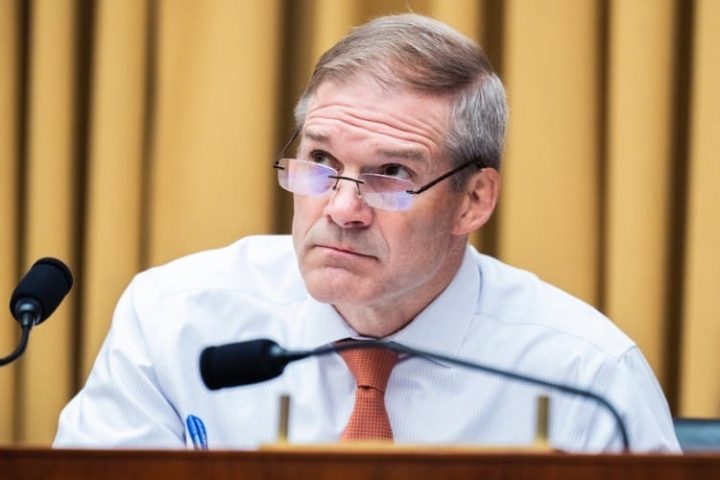
On Tuesday, six GOP lawmakers sent a letter to leaders of Climate Action 100+, a group describing itself as “an investor-led initiative to ensure the world’s largest corporate greenhouse gas emitters take necessary action on climate change.” The letter appears to represent an opening salvo of a GOP effort to investigate so called Environmental, Social, and Corporate Governance (ESG) investments and whether they may violate antitrust laws.
Addressed to Mindy Lubber and Simiso Nzima, the letter requests that Climate Action 100+ produce and preserve scores of documents relating to how the group pushes ESG priorities on corporations.
Among the firms involved with Climate Action 100+ are BlackRock, Rockefeller Asset Management, Rothschild and Co. Asset Management in both Europe and the U.K., and HSBC Global Asset Management. Several regional, state, and local investment managers are also listed as “investor signatories.” Lubber is the CEO and president of Ceres, a nonprofit that primarily concerns itself with “sustainability,” and Nzima heads CalPERS, the California Public Employees’ Retirement System.
The six congressmen, all Republicans, are Jim Jordan (Ohio), Dan Bishop (N.C.), Matt Gaetz (Fla.), Tom McClintock (Calif.), Scott Fitzgerald (Wis.), and Cliff Bentz (Ore). All are current members of the House Judiciary Committee, and Jordan is expected to take the chairmanship once the GOP gains a majority in the House in January. It was unclear if any investigation will be conducted under the auspices of that committee or another one.
The legislators didn’t hold back on what they thought about ESG investments.
“At its core, ESG is merely partisan politics masquerading as responsible corporate governance. A major ESG ‘policy centerpiece’ is stifling investments in oil and gas, and Wall Street firms have ‘brag[ged] about their coordinated efforts to choke off investment in energy.’ Boycotting certain energy investment, however, is just a subset of the types of ESG-related goals,” the letter stated.
And it’s not only climate politics being pushed by Climate Action 100+ and ESG. Their goals include other left-wing political topics.
According to the six congressmen, “The list includes, for example: ‘climate change (e.g., reporting on climate change, risks of climate change, greenhouse gas emissions goals),’ ‘sustainability reporting,’ and other ‘energy-related’ issues. ESG goals can also include other policy concerns, such as ‘fake news dissemination’ or ‘gun control.’ Access to abortion has even become part of ESG.”
Self-professed climate-science contrarian Steve Milloy sums it up well when he calls ESG “an ILLEGAL leftist scam for circumventing democratic processes to impose arbitrary standards on corporations to hijack them for political purposes.”
And the six congressmen are also worried about the questionable legality of ESG, labeling it “collusion.”
“Corporate America’s collusion in pursuit of ESG goals may violate federal or state antitrust laws. Antitrust law is generally ‘skeptical of cooperation among competitors’ over certain matters, and that includes coordination over ESG goals,” the letter states.
In a Wall Street Journal op-ed, Arizona Attorney General Mark Brnovich, who dove into the ESG scheme last year, laid out how coordinated ESG funding may actively be working against investors’ best interest in obeisance to globalist social goals.
About Climate Action 100+, Brnovich writes: “The group uses its coordinated influence to compel companies to shut down coal and natural-gas plants. The activism can include pushing climate goals at shareholder meetings and voting against directors and proposals that don’t comport with the agenda, even if other decisions may benefit investors.”
While several states have come out against ESG investing, this coming investigation would appear to be the first large-scale federal probe into the investing scheme.
With ESG under attack by several states and now, apparently, a House committee, some cracks are beginning to form in what appeared to be a bloc of investment companies and banks committed to the ESG scheme.
In Texas, for instance, Comptroller Glenn Hegar has offered a way for entities to get off of a list the state created earlier this year made up of banned investment companies that “boycott” energy industries. Inclusion on this list, according to Texas law, can result in lost business with state agencies.
The Texas list now states that companies can be removed from the list if they are “no longer included on the Climate Action 100+ and Net Zero Banking Alliance/Net Zero Asset Managers Initiative.”
At least one behemoth investment company, Vanguard, with assets of approximately $7 trillion, is backing off (at least publicly) from its ESG alliances. Today, Vanguard announced it was leaving the Net Zero Asset Managers (NZAM) initiative.
“We have decided to withdraw from NZAM so that we can provide the clarity our investors desire about the role of index funds and about how we think about material risks, including climate-related risks — and to make clear that Vanguard speaks independently on matters of importance to our investors,” the company said in a statement. Vanguard is not a Climate Action 100+ signatory.
Whether Vanguard will truly back away from ESG investment remains to be seen, but its decision to publicly remove itself from NZAM shows one thing: The large investment firms are seeing that many investors don’t approve of ESG.




